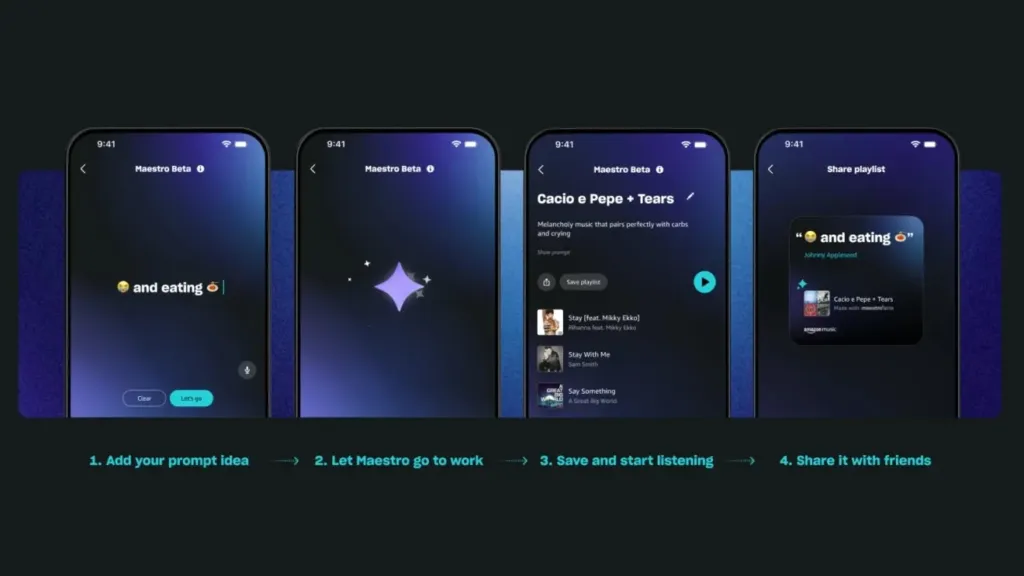In a move to compete with Spotify’s AI-driven playlist generation, Amazon has announced the launch of Maestro, a new feature within the Amazon Music app. Maestro allows users in the US, on both iOS and Android, to create personalized playlists using spoken or written prompts, including the incorporation of emojis.

The prompts can encompass activities, sounds, or emotions, and users can even choose from a selection of suggested prompts if they’re unsure of what to write. Within seconds, Maestro generates a playlist of songs that are designed to match the user’s input.
While the technology is still in beta, Amazon has implemented safeguards to proactively block offensive language and inappropriate prompts. However, the company acknowledges that the AI behind Maestro “won’t always get it right the first time.”
Accessibility and Features Maestro is currently available to a select subset of Amazon Music’s free users, as well as Prime members and Unlimited subscribers. Paid subscribers will have access to more functionality, such as the ability to instantly listen to and save the generated playlists. Free and Prime users, on the other hand, will only be able to preview 30-second snippets of the songs before saving them.
This feature is part of a broader trend of making premium AI experiences a paid offering, potentially driving more users to upgrade to a paid subscription to fully utilize the AI-powered capabilities.
To access Maestro, users must update their Amazon Music mobile app and navigate to the home screen, where they’ll find the Maestro option. Alternatively, they can tap the “+” sign to create a new playlist and select the Maestro option.
User Prompts and Expansion Plans Amazon has provided examples of the types of prompts users can utilize, ranging from emotional states and activities to specific musical genres and eras. These prompts can be as simple as “😭 and eating 🍝” or as specific as “Myspace era hip-hop” or “Music my grandparents made out to.”
The company did not provide a timeline for when the Maestro beta would expand to a wider audience, stating only that it will be made available to more customers over time.

